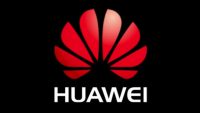At the Group of 20 meeting in Osaka, Japan, President Trump stated that U.S. products can again be sold to Huawei Technologies, allowing the Chinese tech company to buy the U.S. components it needs to stay afloat. Trump added, however, that his move does not lift the ban on goods related to national security. Much of the U.S. concern about Huawei has centered on claims that its products are security risks, and the Commerce Department has been hesitant to remove Huawei from its blacklist. Today, commerce secretary Wilbur Ross said the U.S. will issue licenses for companies wanting to do business with Huawei as long as there is no threat to national security.
“That could offer a reprieve to American companies like Qualcomm, Intel, Broadcom and Google, which sell microchips to Huawei and other specialized parts that go into its smartphones and telecom equipment,” according to The New York Times.

Ross “said the administration was updating its export control policies to reflect a ‘fusion’ between China’s military and its civilian businesses, which [he] called a threat to America. And he warned companies not to sacrifice intellectual property and other trade secrets in order to gain access to growing markets like China.”
While “Ross stopped short of announcing long-expected additions to the list of products subject to American export controls,” notes NYT, he “said the Commerce Department would continue to review which technologies might need protection.”
The Wall Street Journal reports that, according to New America think tank fellow Samm Sacks, “any rollback risks backlash for Trump from some American politicians on both sides of the aisle who have called for an even tougher posture toward Huawei.” The ban on Huawei is similar to last year’s sales ban on ZTE, but, he added, “any backlash to a Huawei deal will be 10 times worse than we saw with ZTE.”
“But keeping a ban in place means Beijing is unlikely to make any trade concessions,” Sacks said.
Last year, Huawei spent $11 billion on American goods crucial to its own products, including Qualcomm chips for its $51 billion consumer products sector. But, lifting the ban only for Huawei’s consumer products, “doesn’t help the company that much,” said Eurasia Group geo-technology head Paul Triolo, because “the company’s core business is building networking infrastructure for telecom carriers.”
In the first month after Huawei was blacklisted, its smartphone sales dipped 40 percent, and company founder Ren Zhengfei initially said the ban would “cost the company $30 billion in lost revenue this year and next,” although he later said “the decline had moderated.”
U.S. companies have also complained about their financial woes due to the ban; Semiconductor Industry Association president John Neuffer praised the “progress made today by President Trump and President Xi in Osaka.” Nonetheless, U.S. companies “have forecast billions of dollars in losses from the action, and many non-U.S. companies have frozen business with Huawei out of fear of running afoul of U.S. rules.”
In light of the latest news, German-based Infineon Technologies, “which last month suspended shipments from its U.S. operations to Huawei … signaled plans to resume those shipments pending official word from Washington.”
Related:
Huawei Staff Share Deep Links With Chinese Military, New Study Claims, CNBC, 7/8/19
Huawei CEO: Our ‘Plan B’ OS is Likely to Be 60% Faster Than Android, ZDNet, 7/8/19

No Comments Yet
You can be the first to comment!
Sorry, comments for this entry are closed at this time.